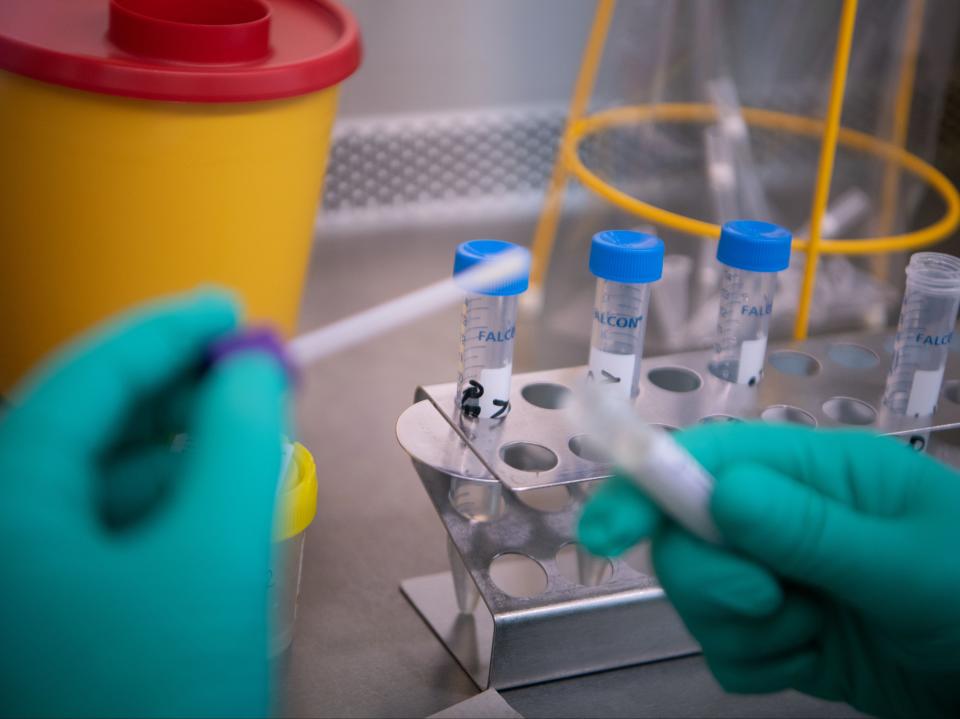Efforts to develop at-home pills to tackle Covid-19 could be hindered by ‘poor’ development of antiviral drugs

The development of antiviral drugs which could be used to tackle Covid-19 has been “really poor” and could hinder efforts to find an ‘at home’ treatment, the head of the world’s largest coronavirus clinical trial has warned.
Professor Peter Horby, who set up the UK’s Recovery Trial and is a member of the government’s Scientific Advisory Group for Emergencies (Sage), said more investment is needed to produce medicine capable of treating those infected.
To date, clinicians have largely relied on repurposed medicine - such as dexamethasone and tocilizumab - to treat the overactive immune responses triggered by Covid infection which can lead to hospitalisation.
But governments and health authorities are also desperate for “direct-acting” drugs which target Sars-CoV-2 itself and the viral processes by which it replicates within human cells.
This type of antiviral medication, when taken early, can prevent the progression of severe Covid-19 and keep people out of hospital, helping to ease pressure on health services.
Scientists have said it will probably take years to develop a bespoke drug of this kind, explaining there has been a lack of investment in this field in recent decades. This also calls into question Downing Street’s recent plans to deliver two effective antiviral treatments to the population by autumn.
Throughout the pandemic, Prof Horby and his team have recruited thousands of hospitalised patients into their study to test the effectiveness of existing drugs in treating Covid-19 in those who are severely ill.
The Recovery trial notably found that dexamethasone, a cheap steroid, and tocilizumab, an anti-inflammatory drug, can reduce the risk of death. Other medicines, such as hydroxychloroquine, have been taken out of the equation by the study.
But, speaking to The Independent, Prof Horby warned that the project has “pretty much run out of drugs to put into it”.
“I think its a reflection of how the drug development pipeline is really poor,” he said. “We haven’t got any good antiviral drugs to put into the Recovery Trial other than monoclonal antibody therapy.”
This treatment, which is expensive and inaccessible to many, involves treating patients with lab-designed antibodies capable of neutralising the Covid infection.
Prof Horby added: “Nothing new has come out of the pipeline in years. That does need investment. We’ve got a trial infrastructure to evaluate the drug but if there’s nothing to test, then we’re a bit stuck.”
It’s expected the UK’s new antiviral taskforce will pump money into this area of research and development, hopefully leading to the emergence of a new generation of drugs which can target both Sars-CoV-2 and the severe symptoms it triggers.
However, Professor Lawrence Young, a virologist at Warwick University, explained that developing antiviral drugs is “very challenging”.
He told The Independent: “Viruses invade our cells and use the machinery within these cells to reproduce. Anti-viral drugs therefore have to get inside our cells and target processes that are essential for the normal functioning of those cells.
“This can lead to dangerous side effects. So it takes many years to develop and test these drugs and then there is the problem that viruses can quickly change to become resistant.”
There has been great breakthroughs in recent years in developing antivirals against more persistent infections which require longer-term treatment, as seen with HIV, but the pharmaceutical industry has shied away from producing medicines for shorter, acute infections due to cost concerns.
“One problem is that the profit motive can be more easily applied to chronic viral infections as the treatment courses can be very long,” Dr Sam Wilson, of Glasgow University’s Centre for Virus Research, told The Independent.
“It costs a lot of money to make an antiviral drug if the treatment course only last days (as is the case for many acute viral infections) and viruses can become drug resistant. This can impact profitability.”
As a result, there are few viable candidates with which to treat early Covid and other infections, scientists believe. Prof Young said there are “only about 10 currently available antiviral drugs, but we’ve got more than 220 virus infections in humans”.
In its search for ‘Covid pills’ that the public can take at home, the UK government will likely be forced to test and repurpose those antiviral drugs that are already licensed, according to Professor Stephen Griffin, a virologist at Leeds University.
“If they’re working to autumn, it’s a tight timeline,” he told The Independent. “To do a human trial even before October is going to be pretty quick. We’ve also got the issue that our infection numbers are dwindling. Doing any type of trial in this country will be a challenge.”
He added: “If we want to get serious about developing something that we could use as an effective treatment for a newly emerging virus, we need to really get serious about wide ranging antivirals programmes, targeting the sorts of viruses that could emerge as a pandemic infection.
“We need more investment from government to do that really, in the same way they’ve invested in the vaccine programme.”
Read More
How Covid-19 has disrupted efforts to care for blood cancer patients
Virus hunters: By catching bats, researchers hope to stop the next pandemic
AstraZeneca vaccine guidance could change again if wider UK situation changes, says JCVI member

 Yahoo Finance
Yahoo Finance 